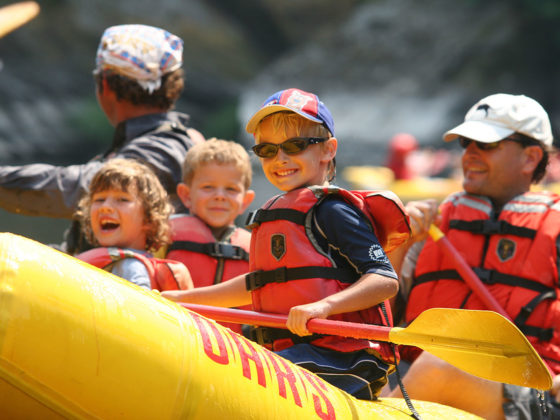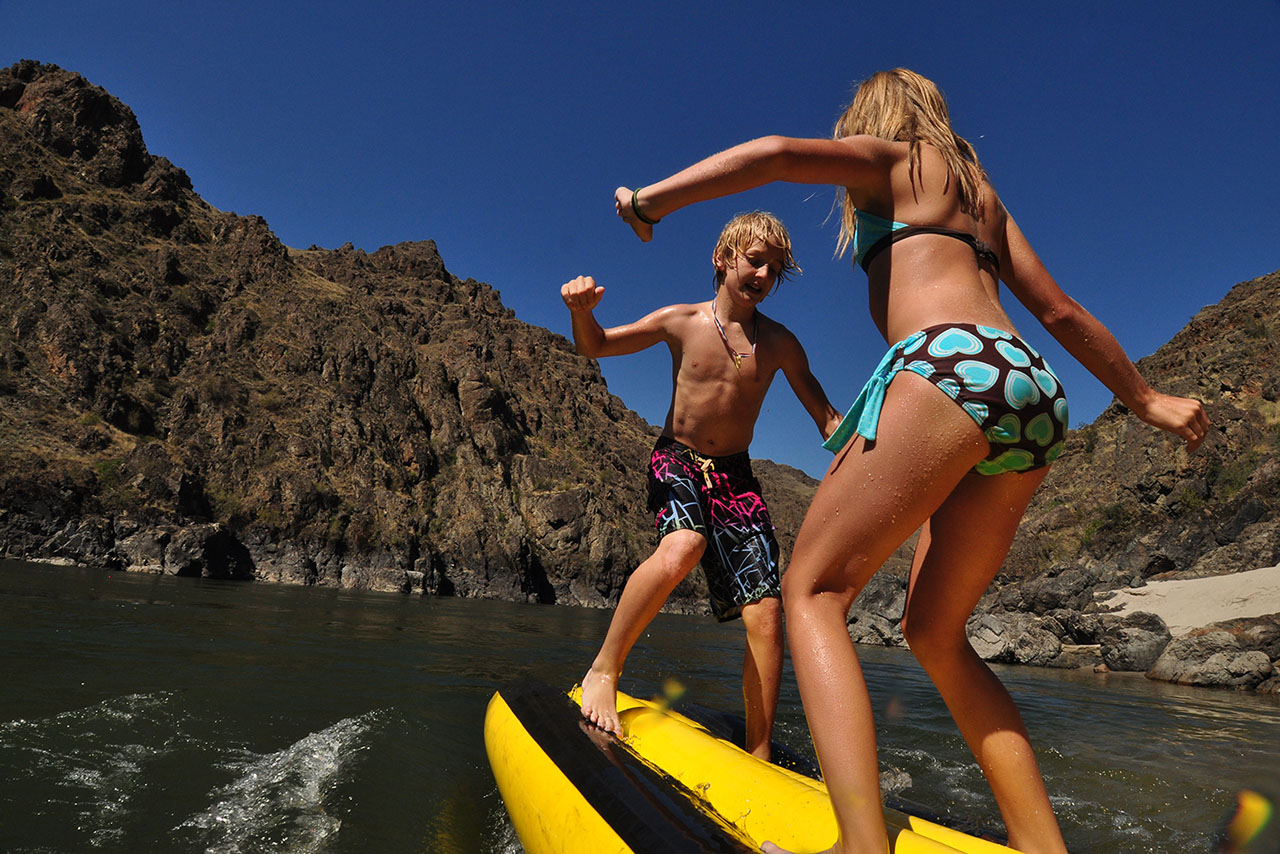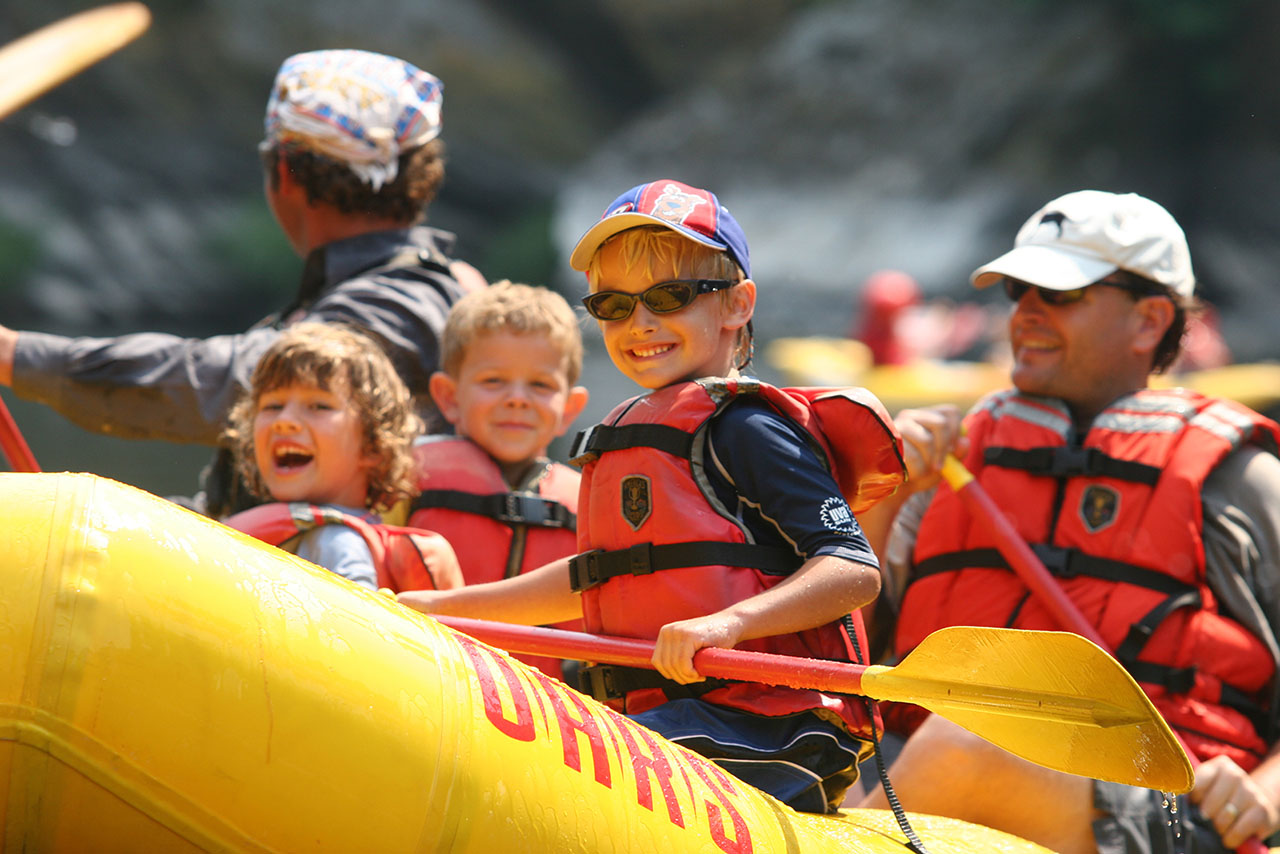I’m not a river guide. In fact, my first real river trip wasn’t until my 20s when I signed up for a rowdy Class IV Tuolumne River rafting trip just outside of Yosemite National Park. I wanted to cross another item off of my “I should try that” list, but afterwards, I was hooked. It wasn’t just the whitewater either. Growing up in the Midwest, I had never experienced wilderness quite like that and I wanted more.
Now, thanks to some weird twist of fate, I actually work for one of the world’s premier whitewater rafting companies. And what makes me the most happy about this, other than the obvious job perks, is that my two boys are going to grow up rafting. They’re toddlers now, but here are a few things they will learn on our family rafting trips in the years to come.




